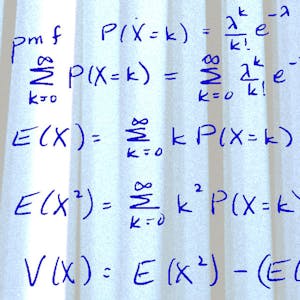Data Science Foundations: Statistical Inference is a comprehensive program designed to provide learners with a strong understanding of probability theory and statistical inference in preparation for delving into the broader study of statistics. Through this course, participants will gain the essential skills required to perform fundamental statistical analysis of a data set using the R programming language.
The course comprises three modules, each covering key aspects of statistical inference. Module 1 focuses on probability theory, emphasizing its importance in statistics and data science, along with the relationship between conditional and independent events. Module 2 delves into statistical inference for estimation, teaching learners to identify characteristics of "good" estimators and construct and interpret confidence intervals. Module 3 explores statistical inference and hypothesis testing in data science applications, covering topics such as composite hypothesis, test statistics, and sampling distributions.
Certificate Available ✔
Get Started / More Info
This course consists of three modules. Module 1 covers probability theory, Module 2 focuses on statistical inference for estimation, and Module 3 explores statistical inference and hypothesis testing in data science applications.
Module 1: Probability Theory: Foundation for Data Science
Module 2: Statistical Inference for Estimation in Data Science
Module 3: Statistical Inference and Hypothesis Testing in Data Science Applications
Advanced Linear Models for Data Science 2: Statistical Linear Models provides a comprehensive understanding of least squares from a linear algebraic and mathematical...
Learn to forecast US Presidential Elections using mixed effects models in R, exploring voting trends and building a forecasting model for the 2020 election.
Managing, Describing, and Analyzing Data equips learners with essential skills in data understanding, classification, and analysis using R software, probability...
Statistical Inference for Estimation in Data Science provides essential knowledge of statistical inference, confidence intervals, and estimation techniques, empowering...